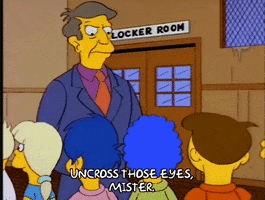Are There Treatment Options For Strabismus?
Strabismus, or misaligned eyes, is a problem best treated promptly. Proper eye alignment is essential, especially early in a child’s life.
If their eyes are consistently crossed, they might go on to develop poor eyesight and depth perception. Untreated strabismus can also develop into amblyopia or lazy eye.

However, children aren’t the only ones susceptible to strabismus. Misaligned eyes in adults can be leftover from childhood or caused by eye disease, injuries, or aging. In these cases, strabismus can cause double vision, low self-esteem, and even limited job opportunities.
Only an ophthalmologist can assess your strabismus and build you a treatment plan. Strabismus surgery is a standard treatment for strabismus, but there are also other less intense treatments.
And, strabismus surgery is more than a cosmetic procedure. It can improve how you read, drive, and communicate with others.
Have you noticed one of your child’s eyes turning? Or are you experiencing symptoms of strabismus yourself?
The proper treatment can realign your eyes. Keep reading to learn more about strabismus and what the treatment options are.
What is Strabismus?
Strabismus is a relatively common condition that causes the eyes to cross. It is most common in children, but adults can have it as well.
When the eyes cross, each one focuses in a different direction. In children, the brain compensates for this by favoring the stronger eye.
When parts of the body are not used like this, they begin to atrophy. Atrophy in the muscles of your eyes can cause the weaker eye to become underdeveloped, leading to amblyopia or a lazy eye.
There are four types of strabismus, depending on which way the eye turns:
- Esotropia, the eye turns inward
- Exotropia, the eye turns outward
- Hypertropia, the eye turns upward
- Hypotropia, the eye turns downward
Esotropia and exotropia are the most common forms of strabismus, but they often develop differently. Esotropia, or inward turning strabismus, requires urgent attention.
Without proper treatment, it can cause vision loss, and the eyes will struggle to focus in unison. Exotropia typically progresses slowly, and your eye doctor will track it before deciding on treatment.
Vertical strabismus is rare but has many of the same symptoms and treatments as horizontal strabismus. Strabismus can also be continuous or intermittent.

Causes of Strabismus
The different types of strabismus are often rooted in various issues. Congenital esotropia is usually observed in infants with a family history of strabismus.
Acquired esotropia often manifests in children between the ages of two and five. Intermittent exotropia is the most common form of strabismus and occurs when your eyes do not coordinate together.
Accommodative esotropia is often caused by untreated farsightedness or hyperopia. Farsighted people have to focus intently to keep images clear, which can cause the eye to turn inward.
This is because focusing and aiming the eyes engages similar muscles. It can be challenging to accommodate for both farsightedness while also focusing on specific objects.
Strabismus in adults is usually residual or carried over from childhood. Many patients might have received poor treatment or no treatment at all.
Health conditions can also cause strabismus in adulthood, particularly strokes. Another common cause of strabismus is accidents and injuries to your eye.
These can be from medical procedures or blows to your eyes during activities. A lot of situations that can injure your eyes can cause strabismus to develop.
Common Symptoms of Strabismus
Generally, you can identify strabismus based on which direction the eye is pointing. But, a professional examination is necessary to diagnose the specifics of the condition. Symptoms of strabismus include:

- Eyes that do not move together
- Misaligned eyes
- Squinting and blinking, especially in sunlight
- Tilting the head to look at things
- Covering one eye
- Double vision, especially in adults
- Faulty depth perception
- Headaches
- Eyestrain
It’s essential to watch your child’s vision as they grow, especially if you have a family history of strabismus. If you notice misalignment or odd mannerisms, make sure to arrange an eye exam as soon as possible. If left untreated, strabismus can worsen and persist into their adult lives.
How Do You Treat Strabismus?
An eye doctor can diagnose strabismus by examining the alignment and focusing power of your eyes. They also search for refractive errors and abnormalities that might be causing the misalignment.

Once they diagnose you with strabismus, you can begin discussing treatment options. Simple treatments can often work for children.
These conservative treatments include things like eye patches, corrective glasses, and eye exercises. However, many adults and some children may benefit most from surgery.
Surgery for strabismus involves tightening or loosening the muscles that control the eyes. There is no one-size-fits-all treatment plan for strabismus surgery.
The surgeon adjusts the eye muscles during each procedure based on how much shifting your or your child’s eye needs. That way, eyes are appropriately aligned with one another.
A recession procedure loosens the muscle by detaching it and reattaching it further back in the eye. A resection does the opposite, tightening the muscle by removing a small portion and reattaching the two ends.
These processes do more than just correct the cosmetic issue of misaligned eyes. They can help prevent vision loss and lazy eye in children with strabismus. A well-aligned gaze can also boost self-esteem, improve job opportunities, and make reading and driving easier.
Are you or your child struggling with strabismus? Learn more about this common condition and how to treat it at a consultation with your eye doctor.
Schedule an appointment at Complete EyeCare West in Columbus, OH. Don’t let misaligned eyes affect your or your child’s life any longer! Treatments are available and effective.







